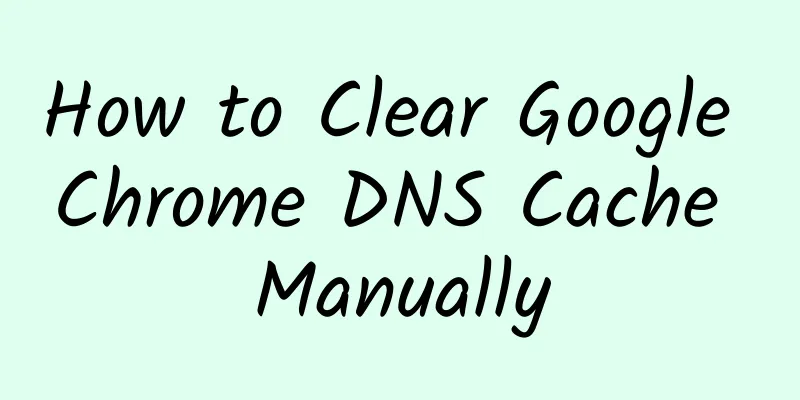Construction and operation of private domain traffic!

|
When some brands engage in " private domain traffic ", they only simply and crudely pull groups and divert traffic. Their operating methods are rough and their operating staff are rigid. It is better not to do such private domain traffic operations. When it comes to cases of achieving rapid sales growth through private domain traffic, everyone will only think of one brand - Perfect Diary. It is precisely by sedimenting Tmall store users into the private traffic pool and carrying out a series of operational means such as retention, maintenance, conversion, fission, word of mouth, and communication that Perfect Diary has become the hottest dark horse beauty brand in recent years, with sales growth rate reaching 1193%. Many beauty brands have also seen Perfect Diary’s success in private domain traffic and have begun to deploy in the private domain. However, the private domain strategy and form they finally presented were far from Perfect Diary's. So what mistakes did these beauty brands make when building their private domains? We personally investigated a domestic beauty brand that is also ranked in the top 20 of Tmall like Perfect Diary. Taking this brand as an example, we analyzed in detail the problems they encountered when building their private domain. In order to avoid unnecessary misunderstandings and public relations troubles, we will refer to this brand as Brand A. 01 Large amount of loss in the diversion linkBrand A ranks among the top 20 domestic beauty brands on Taobao in 2019. The annual sales volume is expected to be around several billion. It is famous for its fashionable, easy-to-use and cost-effective lipsticks, pressed powder and other items. Among them, Brand A’s pressed powder ranks No. 1 in sales across all platforms. We also placed an order for Brand A’s flagship lipstick on their Tmall store. After we placed the order, before we received the goods, we quickly received a text message from Brand A, reminding us that we had received the qualification to try the "Slimming Mascara" and to follow the official account. Reply [Surprise] to receive it. Although the method of using SMS to attract public accounts is simple and crude, it is direct and fast enough. However, through a large number of case tests, near-field e-commerce firmly believes that: Whether it is through SMS traffic diversion or using official accounts as traffic landing points, there will be a high loss rate for building a private domain. First of all, the opening rate of SMS is already very low. After seeing the SMS, customers need to open WeChat and search for the WeChat ID or the official account, and then add or follow it. Each of these multiple steps is accompanied by a large amount of loss. While depositing content into official accounts seems to shorten the conversion process, it does not actually improve conversion efficiency. Because the opening rate of WeChat official accounts has gradually declined, and the shopping scenarios of official accounts are far weaker than Taobao, this continuous loss of traffic to official accounts and then striving for a lower purchase conversion rate is itself a huge waste of traffic. This loss is not over yet: when we follow the official account of store A, we see the following picture: This entire screen actually contains 4 levels of information:
This is a very obvious link error, and this error is information overload. Only by providing users with the most direct and clear guidance on mobile devices, especially at each step of the operation chain, can the churn rate be minimized. After seeing the densely packed text and pictures on Brand A’s official account, the user may only do one thing, which is to close the official account and not proceed to the next step. Let’s take Perfect Diary as an example. When users follow Perfect Diary’s official account, they can reach out directly and the link is clear. (Perfect Diary is on the right) Therefore, although Brand A’s store was very successful, when he first started building his private domain, the entire operating system was inefficient. The improvements suggested by near-field e-commerce are as follows:
02 Traffic diversion links are confusingIn addition to the large amount of loss during the diversion process, Brand A is also very confused in its acceptance of private domain users. For example, I followed a public account based on a text message about receiving mascara, and then I replied [surprise] to try to receive the mascara, but the public account popped up a link and a bunch of text that was again information overload. I opened the link and found it was a micro mall... Well, let’s just call it a micro mall. I looked through the WeChat mall thoroughly, but I still couldn't figure out where I could get my mascara? In addition, since Brand A does not perform one-to-one identity identification and binding for users in the official account, the traffic flow link will fall into constant repetition. For example, I clicked left and right, and inexplicably added three customer service representatives with different names, and then was pulled into the WeChat group of users of store A with four different names... These details also reveal that Brand A had a rough mentality when building its private domain. They add people when they come and create a group when they come. They don’t care whether the users are truly differentiated or whether the overall link is working. These problems are very damaging to the customer experience and seriously undermine the customer's favorability towards the brand. I don’t know why, but I added 4 groups and 3 customer service representatives of Brand A by clicking left and right, and there was no logic in the link at all. The improvements suggested by near-field e-commerce are as follows:
03 The characters are random, the content is boring, and there is no soulWe direct customers to private domains in order to become friends with them, thereby going beyond the ordinary seller-customer relationship and establishing deeper feelings, so as to better maintain customers in the long term. Therefore, if we can make customers trust us, be willing to get close to us, and make them feel that we are not cold sellers but humane friends, then our WeChat personal IP is very important. A good personal IP can convey the brand to your customers in a concrete way, allowing customers to truly feel that your brand is vivid, distinctive and warm through your name, your reception, your speech and your circle of friends. However, as a beauty brand with annual sales of billions and that often creates joint products with well-known art museums, Brand A is too casual and rough in its naming on WeChat, creation of its personality, and arrangement of content in Moments. The following are pictures of several customer service representatives from Brand A’s private domain: The avatars downloaded randomly from the Internet, the bland names, the distorted Moments covers, the careless personal signature introductions, and the large amounts of promotional copywriting in the Moments all give people a feeling of cheap micro-business. You may ask, what’s the point of all these WeChat personal IPs, Moments content, and other messy and nonsensical things? Of course it works:
Imagine that as a customer, I see products in Brand A’s Tmall store that are so high-end and classy, but after adding Brand A’s WeChat, I feel that it is a cheap micro-business. How does the customer feel then? Isn't this just destroying your own brand? Therefore, the improvements suggested by near-field e-commerce are as follows:
04. Poor reception language and attitudeIn the process of investigating Brand A's private domain, what hurt me most was the customer service team in the private domain. Their reception level and attitude towards customers were not as good as the auntie who sells fruits downstairs from my house. Since most customers are like me, they were introduced to Brand A’s private WeChat group through welfare text messages offering mascara, eyebrow pencil, and concealer. But as I said before, due to the confusing links in the entire traffic flow, many customers did not know how to claim the prize after joining the group, and kept asking in the group. But the customer service of Brand A seems to be a machine reply and basically does not respond at all. As a result, we often see conflicts between customers and customer service in the group. Customers keep asking questions, but the customer service replies are machine-generated and do not respond to customers' inquiries: Sometimes customer service will confront customers in private... I said before that in the private domain, the distance between you and your customers will quickly shorten. The side effect of this shortening is that any of your actions may be magnified by the customers into a negative impact, let alone confronting the customers. In addition, I strongly recommend not to convey the concept of "task" to customers when they just enter the private domain. This will give customers the impression that the brand is unprofessional and false advertising. Therefore, the improvements suggested by near-field e-commerce are as follows:
05 The essence of the problem of store A is that sellers underestimate and ignore the private domainSo you see, logically speaking, a well-known beauty brand that can become one of the top 20 on Tmall must have done an excellent job in operations, branding, products, processes, after-sales service, etc., in order to stand out from the fierce competition in the market. But we personally went to the brand’s private traffic pool to investigate and found that it was not the case at all. We even felt that the level of operation was shocking. You may argue that this is not important, as long as the store makes money and the private domain is okay. This kind of thinking is very divisive. You do a great job in your store and give your customers a great shopping experience, but you end up leading them to your private domain and causing them all kinds of unhappiness and making them experience all kinds of unpleasantness. Don't you think this is insane? Instead of doing this, it is better not to do private domain and focus on running the store, so as not to hurt the feelings of more customers. Therefore, the essence of the problem of store A reflects the underestimation and indifference of private domain traffic by a large number of sellers. They have been mistakenly believing that:
If many beauty and cosmetics sellers engage in private domain business with such mentality, they will probably never be able to create another Perfect Diary. You will never be able to surpass your competitors, and you may even be at risk of being surpassed. 06 Beauty and cosmetics are still the most worthy category to be developed in private domain, and the future is still brightIn this article, I have no intention of writing a negative article about Brand A. I am just discussing the issue at hand and directly and profoundly showing the problems that current sellers are facing in their private domain business. Although Brand A’s private domain has various problems, it can take a step ahead and build up its private domain, which is also an excellence. Looking at all the product categories on Taobao and Tmall, none is more suitable for building and playing with private domain traffic than the "beauty" category.
These advantages determine that as long as beauty brands do a good job in private domains, they will achieve huge success. So the question is: Do you just want to follow a trend, explore, or give it a try? Or are you willing to really try your best and do your private domain well? I think this is the most thought-provoking question for all beauty sellers. Author: Liu Weidong Source: Near-field e-commerce |
>>: The advertising volume is not ideal? Facebook advertising optimization in practice!
Recommend
Electric Technology Auto News: Tencent, which has been criticized as the original creator in the automotive industry, is Zotye really no longer plagiarizing?
When talking about domestic independent brands, Z...
This "Internet celebrity" food contains excessive amounts of heavy metal cadmium! What are the dangers of eating it as a meal every day?
Image from: Weibo In recent years, a "notori...
Analysis of USB Type-C solutions that make ultra-high-speed transmission and fast charging standard for mobile devices
Early smartphone interfaces used Micro USB and Mi...
How to use Xiaohongshu’s algorithm mechanism for oral medical beauty marketing and promotion?
If medical beauty marketing is limited to product...
Moore's Chaos Theory Chaos Theory Phase 3 Basic Course Video Baidu Cloud Download
Moore's Chaos Theory Chaos Theory Phase 3 Bas...
WeChat finally supports multiple devices online at the same time: after experiencing it, asynchronous message transmission becomes the biggest problem
WeChat 8.0.8 finally supports multiple devices to...
How does a weight loss community operate with a turnover of 10 million in 3 months?
April to December every year is the golden period...
Paris has failed in its fight against rats time and time again. Will it choose to coexist peacefully with rats this time?
Paris is one of the cities in the world with the ...
Teacher Xiaojing's "Grammar of Live Selling Courses" Template + Formulaized Course Sales and Monetization Method
Training course content: Teacher Xiaojing’s gramm...
Does the Zhengxin Mini Program take up space? Do WeChat mini-programs take up space on my phone?
Will using mini-apps take up storage space on you...
When will Baidu launch URL targeted promotion?
Baidu URL Targeting is a new internal beta produc...
"Community", a guide to making a profit from a project that earns millions a year!
My definition of a community is an organization c...
How much does it cost to attract investment for Benxi Home Furnishing Mini Program?
How much does it cost to attract investment for t...
A 5.5-inch phone can buy two 50-inch phones! Coocaa K50 review
Recently, the Internet TV brand Coocaa has been m...









